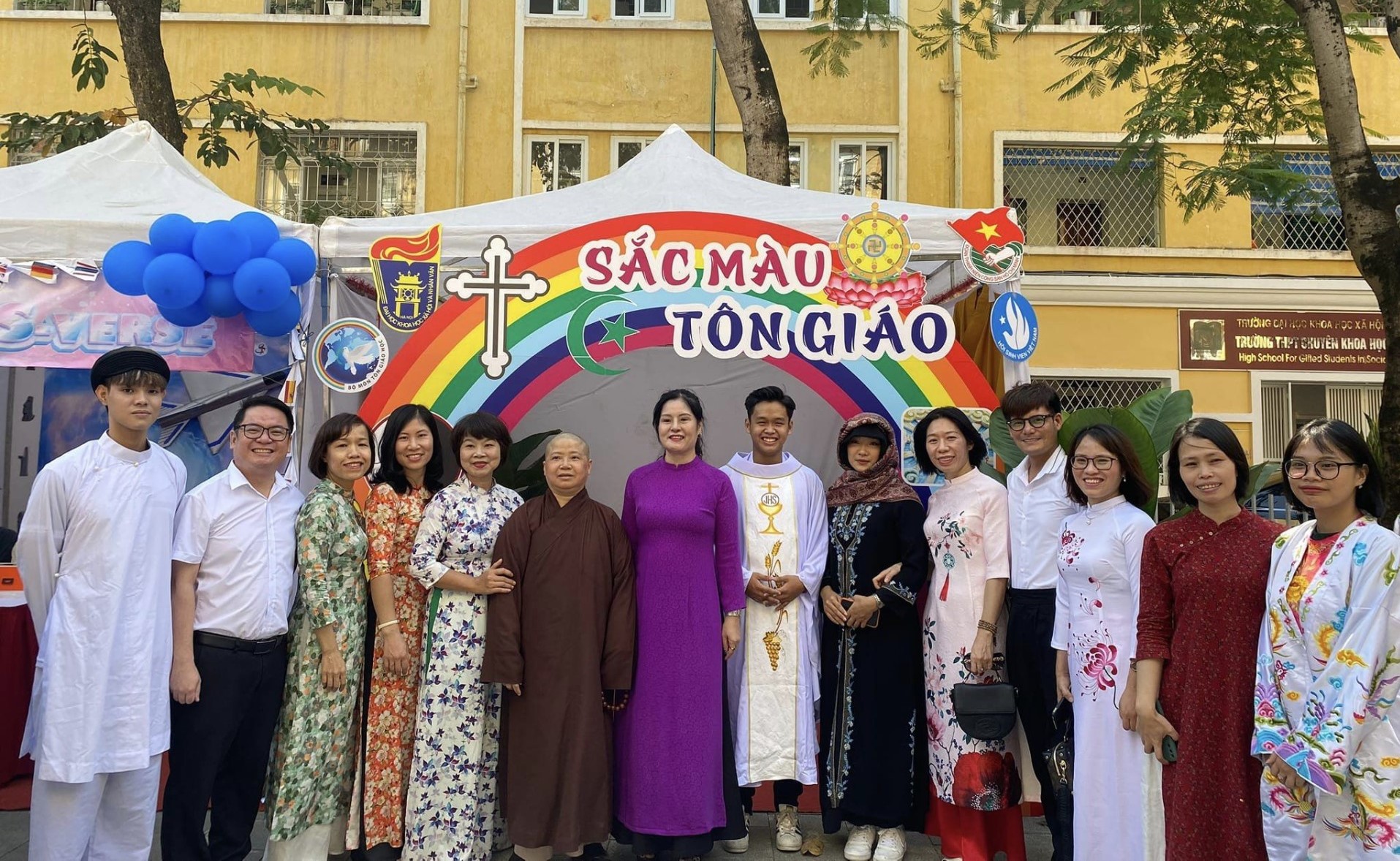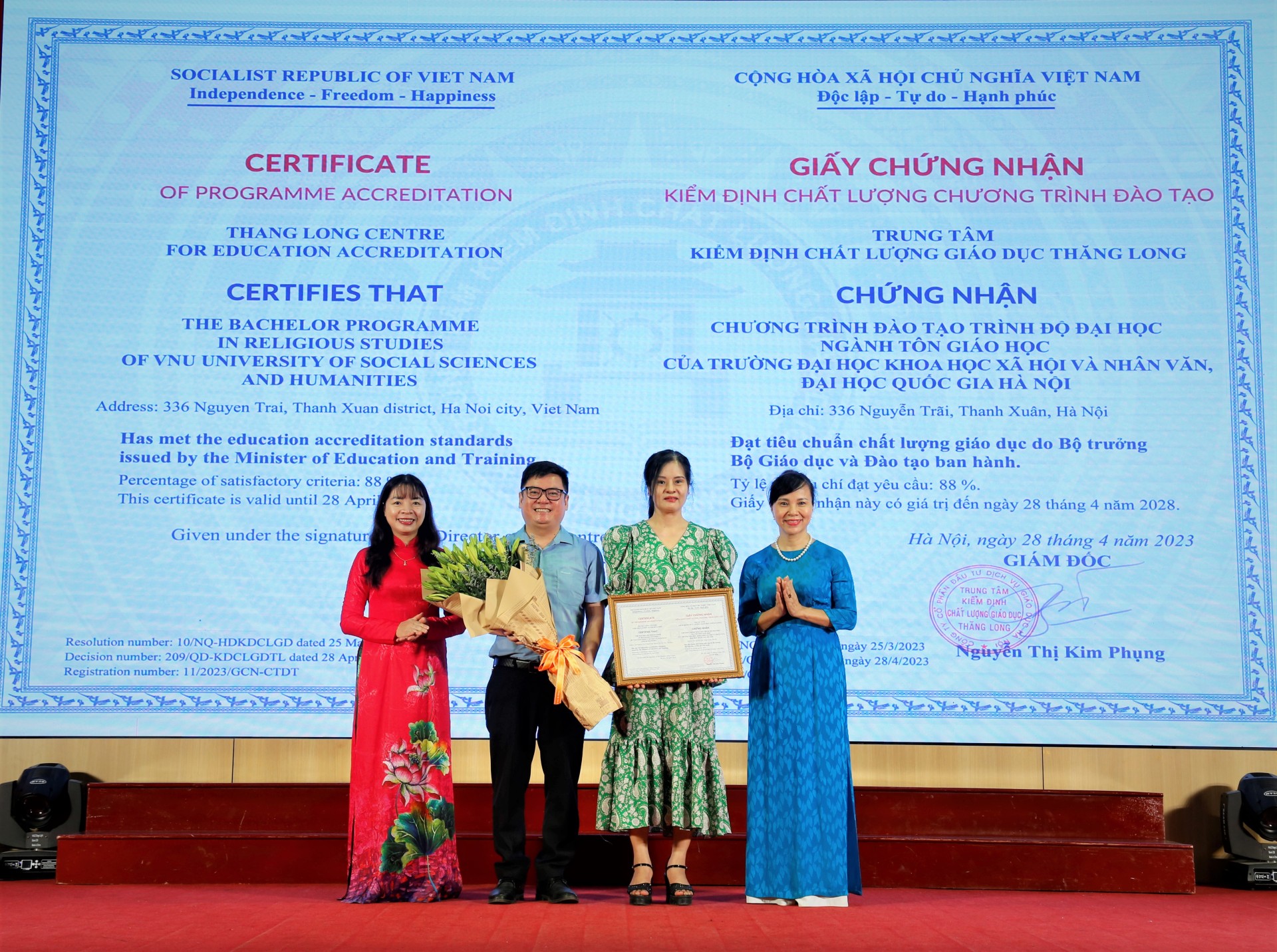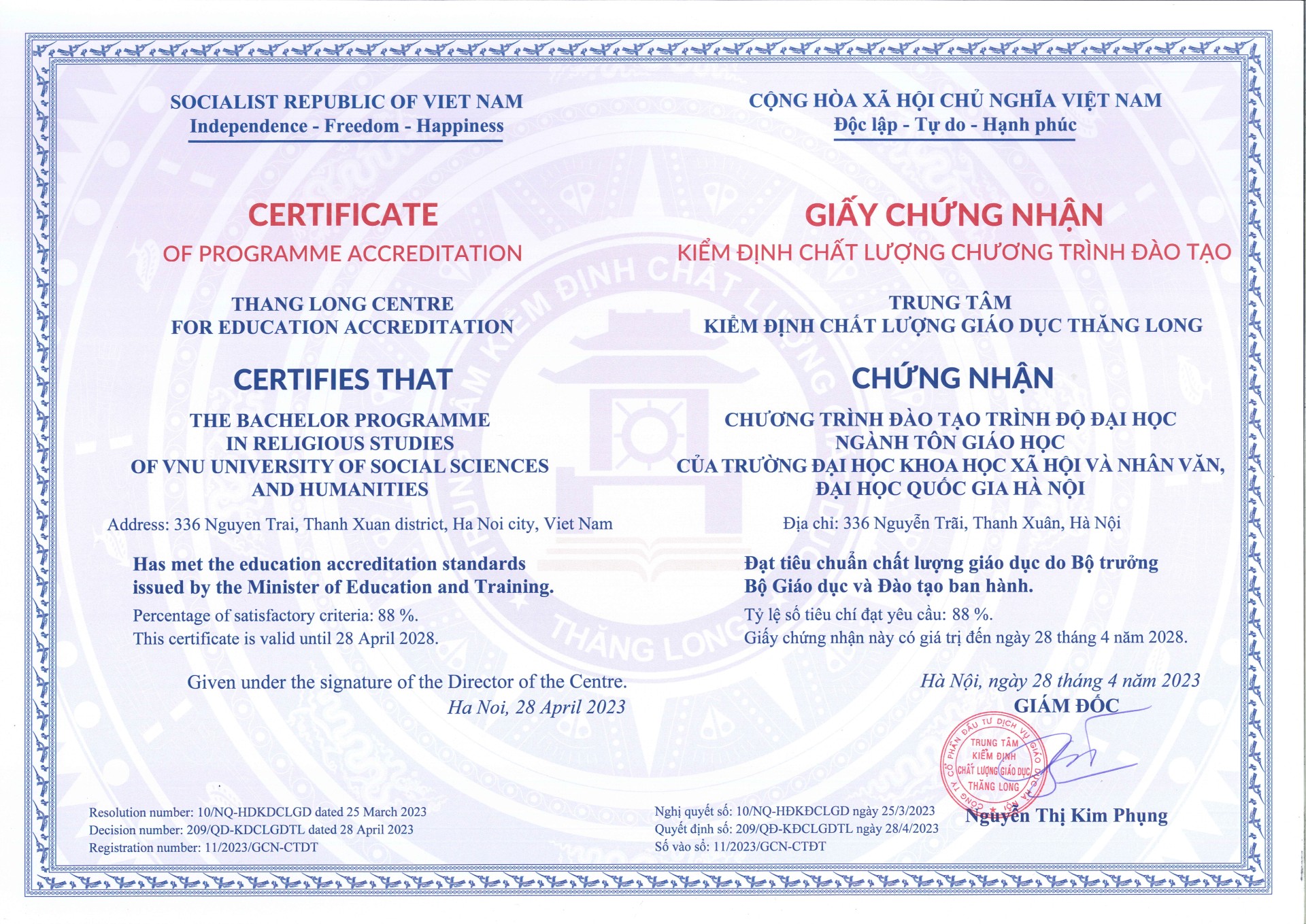Vietnam is a multi-ethnic, multi-religious country with 43 religious organizations belonging to 16 religions that have been recognized and registered by the State; approximately 95% of the population has religious beliefs. A very positive feature in Vietnam is that all religions are closely connected to and accompany the nation; there are no religious conflicts. The guiding principle of Catholicism in Vietnam is "Living the Gospel in the heart of the nation to serve the happiness of the people," and that of Buddhism is "Buddhism - Nation - Socialism"...
Each belief and religion in our country, while possessing its own distinct cultural characteristics, is influenced by national traditions, contributing to the beauty of our diverse and rich cultural identity. The practice of religious rituals and beliefs has helped to establish and unite communities of believers, bringing people closer together. Furthermore, religious knowledge is a source of spiritual nourishment and helps people better understand the identity of their community and nation. These factors enable Vietnamese people to easily integrate with many different beliefs and religions.
Religion is also one of the constituent parts of national culture; the cultural value of religion is expressed in beliefs, practices of moral precepts, and tangible and intangible legacies. For example, the positive cultural and moral values in Catholic doctrine are expressed in the Ten Commandments, seven of which advise on moral conduct, contributing to the cultivation of individual and social morality and culture; Buddhism, with its motto "The Dharma is inseparable from worldly affairs," has promoted its moral and cultural values in Vietnamese social life through concepts of compassion, forgiveness, selflessness, and the law of karma; for Hoa Hao Buddhism, this religion has deepened the nation's tradition of filial piety by teaching people to practice the Four Gratitudes (gratitude to ancestors and parents, gratitude to the country, gratitude to the Three Jewels, and gratitude to fellow human beings)... The cultural value of religions is also expressed in religious architecture and painting. Buddhist music, Catholic hymns, etc.
With its ethical, cultural, spiritual, and material values, religion has been identified as one of the resources for national development. At the 13th National Congress of the Communist Party of Vietnam, the Party affirmed: "Promoting the good cultural and ethical values and resources of religion for the cause of national development" (Documents of the 13th National Congress of the Communist Party of Vietnam, National Political Publishing House, Hanoi, 2021, Vol. I, p. 171). In addition, the Party and State have also clearly stated that religious affairs are a task for the entire political system.
However, currently, the number of human resources with training in Religious Studies is quite modest compared to the needs of society. Specifically, within the national university system, there are currently only two universities offering undergraduate programs in Religious Studies: the University of Social Sciences and Humanities under the Vietnam National University, Hanoi, and the University of Social Sciences and Humanities under the Vietnam National University, Ho Chi Minh City.

Welcome Day for New Students of Class K67 of the Department of Religious Studies, University of Social Sciences and Humanities (Academic Year 2022-2023)
Among them, the University of Social Sciences and Humanities - Vietnam National University, Hanoi (VNU-USSH) is the first university in Vietnam to offer a bachelor's degree in Religious Studies, but to date, only two cohorts have graduated, each with 50-60 students. Regarding the quality of education, the undergraduate program in Religious Studies at VNU-USSH has recently been awarded accreditation for higher education quality according to the standards of the Ministry of Education and Training. In addition to the bachelor's degree, the university currently offers a postgraduate program in Religious Studies.


The Religious Studies program at VNU-USSH has just been awarded the Certificate of Accreditation for Higher Education Quality (Photo: Thuy Dung)
The Ho Chi Minh National Academy of Politics and the Vietnam Academy of Social Sciences also offer postgraduate programs in Religious Studies, but these are for working officials and civil servants. The University of Social Sciences and Humanities - Vietnam National University Ho Chi Minh City will only begin offering Bachelor's degrees in Religious Studies in 2022.
Looking at the figures above, many experts and officials working in the fields of religion and culture believe that the supply of human resources with qualifications in Religious Studies has not met the needs of society and the needs of religious affairs. This is one of the reasons why civil servants and officials working in religious affairs or related units have to attend training courses in this field at political academies. This limitation has also been pointed out by Dr. Vu Chien Thang - former Head of the Government's Religious Affairs Committee: agencies and units working in religious affairs have to recruit and hire people from fields closely related to Religious Studies (such as philosophy, history, cultural studies...); then they have to work while self-studying and learning from experienced colleagues, or be sent by the agency or unit for further training. This situation is due to the fact that only a few universities and academies offer training in Religious Studies. To overcome these limitations, the Government's Religious Affairs Committee advised the Government to approve the "Scheme for training officials and civil servants working in religious affairs in the period 2017 - 2020".
According to Associate Professor Dr. Dang Thi Thu Huong, Vice Rector of the University of Social Sciences and Humanities, Vietnam National University, Hanoi, many fields currently require knowledge of religion, such as architecture, culture, painting, music, tourism, and government and non-governmental projects on cultural, social, religious, and belief development. In particular, for positions related to religious affairs in Party and State agencies, the Fatherland Front, and socio-political organizations, university and postgraduate graduates in Religious Studies are a very suitable source of human resources. This is because they not only receive in-depth training in Religious Studies but are also equipped with the Party and State's guidelines, policies, and laws on this field. Based on this analysis, Associate Professor... Dr. Dang Thi Thu Huong affirmed that training in Religious Studies at the undergraduate and postgraduate levels is a suitable direction to meet the practical needs of society and the demand for qualified human resources in religious affairs agencies; it also contributes to overcoming the situation where people have to simultaneously work and attend training courses, as has been the case in the past.
------------------------------------------
– Name of the training program: Religious Studies
– Educational level: Bachelor's degree.
– Training duration: 4 years
– Name of the graduation certificate:
+ Vietnamese: Bachelor of Religious Studies
+ English: The Degree of Bachelor in Religious Studies
– The unit assigned to provide training: University of Social Sciences and Humanities
Author:According to the online newspaper of the Communist Party of Vietnam.
Newer news
Older news